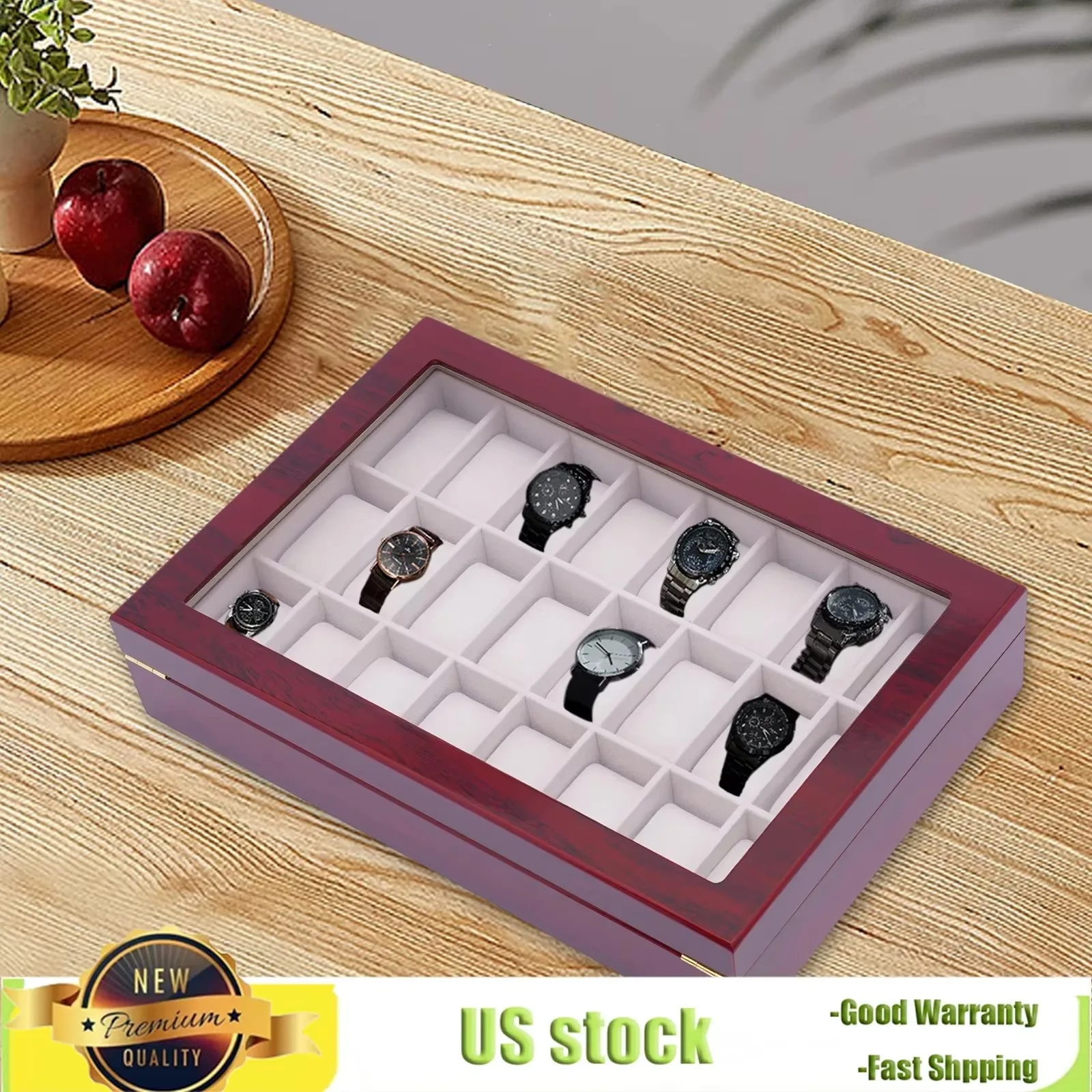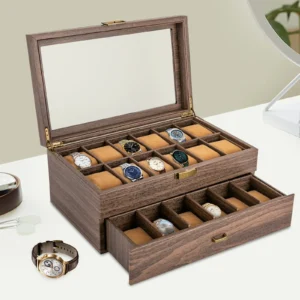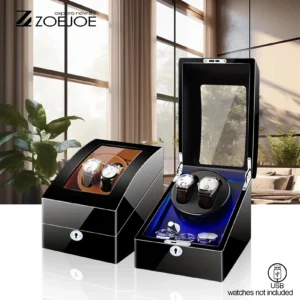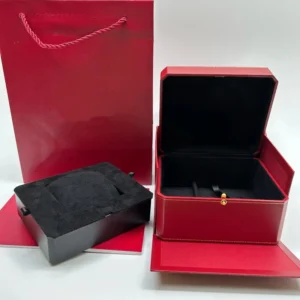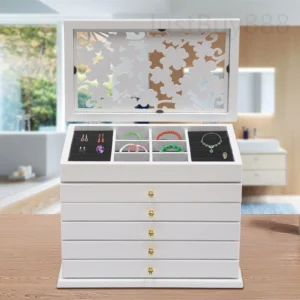The Importance of an Organized Watch Drawer
A well-organized watch drawer isn’t just about aesthetics—it’s essential for protecting your valuable timepieces and enhancing your overall watch ownership experience. When watches are haphazardly tossed into a drawer, they can easily scratch against each other, damaging delicate faces, cases, and bracelets. These small scratches might seem minor, but over time, they can significantly impact a watch’s appearance and potentially its value.
Proper organization offers numerous benefits:
- Protection for your investment: Keeps valuable timepieces safe from damage
- Time savings: Locate and retrieve your chosen watch in seconds rather than minutes
- Enhanced appreciation: Display your collection in a way that showcases each piece
- Preservation of value: Prevent scratches and damage that could decrease resale value
- Reduced stress: Start your day smoothly without searching through a jumbled drawer
The psychological benefits shouldn’t be underestimated either. There’s genuine satisfaction in opening a drawer to find each watch perfectly positioned, ready to wear. Comprehensive watch collection storage planning ensures your timepieces remain in pristine condition while being easily accessible whenever you need them.
Assessing Your Watch Collection: First Steps
Before diving into organizational solutions, take time to evaluate your current collection. This assessment will help you choose the most appropriate storage method for your specific needs.
Count your watches: Determine the exact number of timepieces needing storage.
Categorize by frequency of wear: Separate watches into groups based on how often you wear them:
* Daily rotation watches
* Weekly or occasional timepieces
* Special occasion or collector piecesGroup by type: Consider organizing watches by their category:
* Dress watches
* Sports/dive watches
* Casual everyday timepieces
* Specialty watches (chronographs, GMT, etc.)Identify special care needs: Note which watches require particular attention:
* Automatic watches that might benefit from movement
* Vintage pieces needing extra protection
* Watches with delicate complicationsCreate a simple inventory: Document your collection with basic details like brand, model, and any special requirements.
This assessment provides the foundation for all your organizational decisions. Effective organizing watch collection strategies begin with this understanding of what you actually own and how you use each piece.
Essential Drawer Preparation Steps
Preparing your drawer properly before adding organizers will ensure the best protection for your watches and maximize your storage space.
Start by completely emptying the drawer. Remove everything and thoroughly clean the interior using a lint-free cloth. This eliminates dust and debris that could potentially damage your watches.
Next, take precise measurements of your drawer:
* Length (left to right)
* Width (front to back)
* Depth (top to bottom)
Record these measurements in both inches and centimeters, as you’ll need them when selecting organizers.
Lining your drawer with protective material is crucial for safeguarding both the drawer and your watches:
- Felt: Affordable and provides good basic protection
- Velvet: Luxurious appearance and excellent scratch protection
- Microfiber: Excellent dust resistance and gentle on watch finishes
- Anti-tarnish fabric: Particularly useful for silver or brass watch components
When preparing your drawer, consider its location and environmental factors:
* Keep away from direct sunlight that could fade watch faces
* Maintain consistent temperature (65-72°F/18-22°C) and humidity (45-60%)
* Choose locations with minimal vibration and movement
For collectors seeking specialized solutions, ultimate DIY watch drawer setup options provide customizable alternatives that can be tailored to your exact specifications and watch collection.
Types of Watch Drawer Organizers: Finding Your Perfect Match
Selecting the right organizer type is crucial for maximizing both protection and accessibility. Different organizers offer varying benefits depending on your collection’s size, value, and the watches’ specific requirements.
Pre-made Watch Trays and Inserts
These ready-made solutions fit directly into drawers and feature pre-configured compartments. They’re ideal for collections where watches are similar in size and you prefer a unified appearance.
Adjustable Drawer Dividers
These versatile organizers allow you to create custom-sized compartments. They’re perfect for mixed collections featuring watches of different sizes and for collectors who frequently add new pieces.
Individual Watch Pillows/Cushions
Watch pillows provide excellent protection by supporting the entire watch and preventing bracelet/strap strain. They’re particularly beneficial for watches with metal bracelets or expensive timepieces.
Custom/DIY Solutions
For uniquely shaped drawers or specialized collections, custom-built organizers offer the ultimate in personalization and space efficiency.
| Organizer Type | Best For | Price Range | Key Benefits |
|---|---|---|---|
| Pre-made Trays | Uniform collections | $$ | Professional appearance, easy installation |
| Adjustable Dividers | Mixed collections | $ | Flexibility, customizable spacing |
| Watch Pillows | Valuable timepieces | $$ | Superior protection, bracelet support |
| Custom Solutions | Unique spaces/needs | $$$$ | Perfect fit, personalized features |
Material choice significantly impacts both protection and aesthetics:
* Wood: Classic appearance, naturally resistant to humidity changes
* Velvet: Luxurious feel, excellent scratch protection
* Foam: Affordable, can be easily customized
* Leather: Premium appearance, naturally gentle on watch cases
Quality watch drawer organizer solutions combine protective materials with smart design to keep your timepieces secure while displaying them beautifully.

Strategic Arrangement: Optimizing Your Watch Drawer Layout
The way you arrange watches within your drawer significantly impacts both protection and accessibility. A thoughtful layout makes daily selection easier while ensuring each timepiece remains safe.
Arrangement Based on Collection Size
- Small collections (3-5 watches): Single row arrangement with ample spacing
- Medium collections (6-12 watches): Double row with most frequently worn pieces in front
- Large collections (13+ watches): Multiple layers with categorization by type or wear frequency
Efficient Layout Principles
- Position your most frequently worn watches in easily accessible locations
- Keep similar watch types grouped together
- Arrange watches so that removing one doesn’t disturb others
- Allow sufficient buffer space between timepieces (at least 0.5 inches/1.3 cm)
- Position crown sides carefully to prevent scratching neighboring watches
Handling Special Cases
- Oversized watches: Place these at drawer edges where they won’t crowd other pieces
- Watches with deployant clasps: Position so clasps won’t contact other watches
- Pocket watches: Use specialized cushions or dedicated compartments
- Watches with precious stones: Provide extra spacing to prevent any contact
Creating zones within your drawer based on watch type or wear frequency streamlines your morning routine while maintaining organization. Consider a left-to-right arrangement from most frequently worn to special occasion pieces.
For collectors with extensive collections, exploring creative watch storage ideas collectors use can provide inspiration for maximizing both protection and visual appeal.
Protection Strategies: Safeguarding Your Timepieces
Proper protection within your drawer prevents damage that can diminish both the appearance and value of your watches. Implementing these strategies will help preserve your collection for years to come.
Preventing Watch-to-Watch Contact
- Use individual compartments with dividers that extend above watch height
- Ensure watches don’t shift during drawer opening and closing
- Consider soft divider materials like microfiber or felt that absorb impact
Proper Cushioning Techniques
- Support automatic watches evenly to prevent movement strain
- Use specially shaped cushions for watches with integrated bracelets
- Select cushion firmness based on watch weight and bracelet type
Special Material Considerations
- Leather straps: Store with minimal bend to prevent cracking
- Metal bracelets: Support evenly across multiple links
- Rubber straps: Keep away from leather components that might be affected by oils
Clasp and Crown Protection
- Position watches so crowns face upward or away from other watches
- Secure clasps in closed position to prevent accidental scratches
- Use small cushioning pieces for deployant clasps
Quality watch pillows provide crucial support while preventing bracelet strain. They’re particularly important for heavier watches with metal bracelets, as they distribute weight evenly and maintain the bracelet’s shape over time.
Space Optimization Techniques for Watch Collections
Maximizing available drawer space allows you to store more watches without compromising protection. These techniques help you make the most of your drawer’s dimensions.
Utilize vertical space in deeper drawers
* Stack low-profile trays for two-tier storage
* Use drawer risers to create levels within a single drawer
* Consider pull-out platforms that reveal watches beneathMaximize corner and edge spaces
* Place rectangular watch boxes in corners where round watches won’t fit
* Use flexible dividers to create triangular spaces for accessories
* Position watch tools or cleaning supplies in awkward edge areasCreate zones for different watch sizes
* Dedicate areas with higher clearance for bulkier sport watches
* Use narrower spacing for dress watches with thinner profiles
* Arrange by case diameter to optimize spacing efficiencyImplement modular systems
* Use individual compartments that can be reconfigured as your collection changes
* Select dividers that can be shortened or extended as needed
* Consider removable sections that allow for expansion
For those with limited storage area, exploring creative space-saving watch storage small areas solutions can transform even the smallest drawer into an efficient watch storage system.
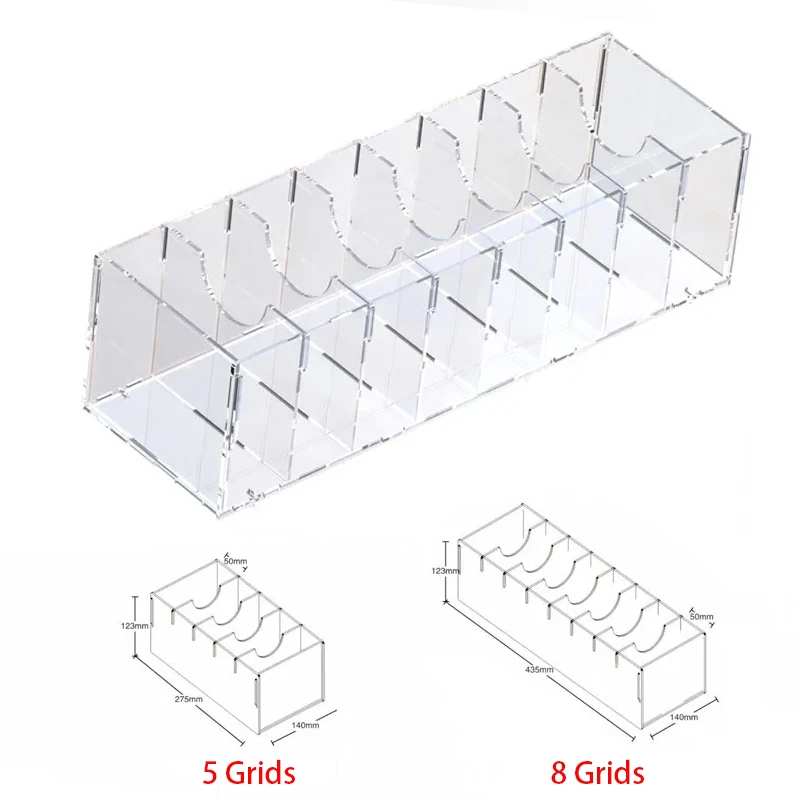
DIY Watch Drawer Organization Solutions
Creating your own watch organizers allows for perfect customization while potentially saving money. These DIY approaches use readily available materials to create effective storage solutions.
Basic Foam Insert Organizer
Materials needed:
* Foam sheet (1/2-inch or 1.3 cm thick)
* Felt or velvet fabric
* Fabric adhesive
* Sharp utility knife
* Measuring tape
Steps:
1. Measure your drawer’s interior dimensions
2. Cut foam sheet to fit the drawer with 1/4-inch (0.6 cm) clearance
3. Mark and cut watch-shaped depressions in the foam
4. Cover the foam with fabric using adhesive
5. Allow to dry completely before placing watches
Adjustable Drawer Dividers
Materials needed:
* Thin wooden strips or sturdy cardboard
* Felt or velvet fabric
* Double-sided tape
* Scissors and ruler
Steps:
1. Cut material into strips of drawer depth height
2. Cover strips with fabric using double-sided tape
3. Arrange strips in drawer to create watch compartments
4. Adjust positioning as needed for different watch sizes
DIY Watch Pillows
Materials needed:
* Foam pipe insulation (available at hardware stores)
* Fabric of choice
* Thread and needle or fabric glue
* Scissors
Steps:
1. Cut pipe insulation into 2-inch (5 cm) sections
2. Cut fabric into rectangles large enough to wrap around foam
3. Wrap and secure fabric around foam pieces
4. Place in drawer compartments to support watches
These budget-friendly watch storage solutions provide excellent protection without the premium price of commercial options. They can be completed in a single afternoon and modified easily as your collection changes.
Maintaining Your Organized Watch Drawer
Creating an organized drawer is just the beginning—maintaining that organization ensures your watches remain protected and accessible long-term.
Regular Maintenance Schedule
Weekly Quick-Check:
* Verify watches are properly positioned on cushions
* Check that dividers remain securely in place
* Remove any dust that may have accumulated
* Ensure watches haven’t shifted to touch each other
Monthly Deep Maintenance:
* Remove all watches and organizers
* Clean drawer interior thoroughly
* Inspect organizers for wear or compression
* Reorganize based on any new additions or changes in wear patterns
Quarterly Rotation:
* Shift watch positions to prevent permanent imprints in cushions
* Rotate automatic watches that haven’t been worn
* Reassess organization system effectiveness
* Make adjustments based on seasonal wearing patterns
Incorporating New Watches
When adding new pieces to your collection:
* Assess if current organization system has capacity
* Consider if the new watch requires special accommodation
* Reorganize by category if the new addition changes your collection balance
* Ensure the watch integrates with your existing arrangement system
Cleaning Guidelines for Different Materials
- Velvet organizers: Gently brush with soft clothing brush, avoid liquid cleaners
- Wood components: Wipe with slightly damp cloth, then dry immediately
- Plastic/acrylic pieces: Clean with mild soap solution, dry thoroughly
- Leather elements: Wipe with leather-specific cleaner and conditioner
Watch organizer solutions are designed for long-term use, but regular maintenance significantly extends their lifespan while ensuring your watches remain properly protected.
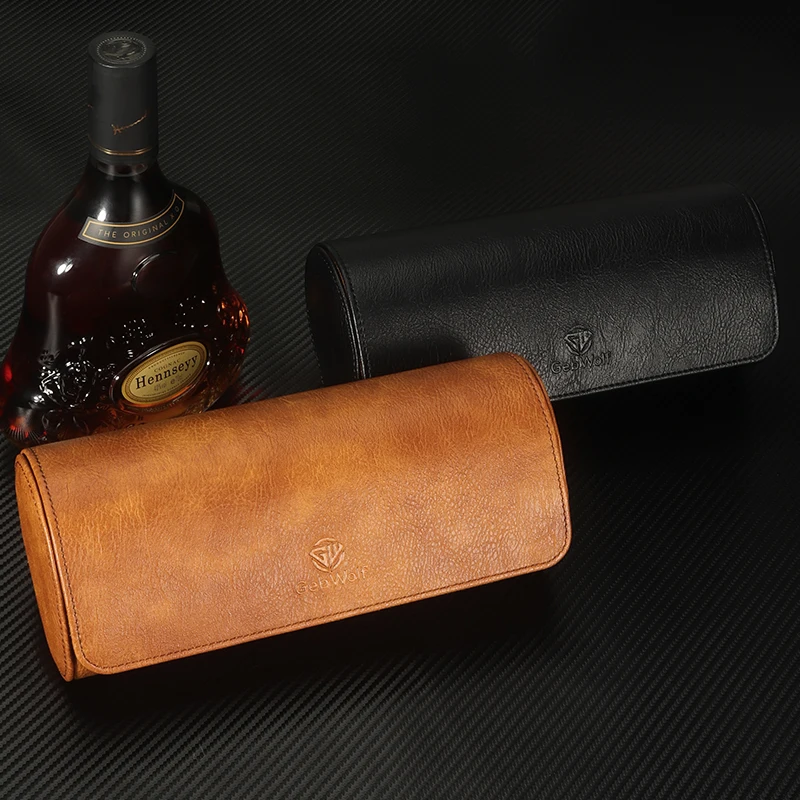
Luxury Watch Boxes, Men's Watch Boxes, Single Watch Box
Price range: $903.35 through $980.97 Select options This product has multiple variants. The options may be chosen on the product pageMen's Watch Organizer, Watch Display Case, Watch Organizer
Price range: $112.68 through $169.45 Select options This product has multiple variants. The options may be chosen on the product pageAutomatic Watch Winder, Luxury Watch Winder, Single Watch Box
$307.39 Select options This product has multiple variants. The options may be chosen on the product pageLuxury Watch Boxes, Luxury Watch Travel Case
Price range: $200.33 through $224.57 Select options This product has multiple variants. The options may be chosen on the product page4 Watch Winder, 6 Watch Box, Automatic Watch Winder
$512.31 Select options This product has multiple variants. The options may be chosen on the product pageWatch and Jewelry Box, Watch Drawer Organizer
Price range: $181.91 through $233.38 Select options This product has multiple variants. The options may be chosen on the product page
Special Considerations for Different Watch Types
Different watches have unique storage requirements. Addressing these specific needs ensures every timepiece in your collection receives appropriate protection.
Automatic/Mechanical Watches
Automatic watches benefit from periodic motion to keep lubrication distributed. If stored for extended periods:
* Consider positioning them so gravity affects different parts of the movement
* Rotate their position monthly if not being worn
* Ensure they’re wound before extended storage
Watches with Leather Straps
Leather requires special attention to prevent cracking and maintain appearance:
* Store with minimal bend in the strap
* Keep away from watches with rubber or silicon straps
* Maintain proper humidity (too dry can cause cracking)
* Position to avoid compression marks from buckles
Vintage Timepieces
Older watches often have special requirements:
* Provide extra cushioning for fragile crystals
* Keep separated from modern watches to prevent pressure damage
* Consider individual soft pouches within the drawer organization
* Position away from drawer edges to minimize vibration exposure
Oversized Watches
Larger timepieces need accommodation for their dimensions:
* Allow extra space around each piece
* Use larger cushions to properly support case and bracelet
* Position where they won’t dominate access to other watches
High-quality watch boxes provide alternative storage for special pieces that might need extra protection beyond what a drawer system can offer.
Frequently Asked Questions About Watch Drawer Organization
How many watches can reasonably fit in a standard drawer?
A standard drawer measuring about 24 inches wide by 18 inches deep (61 cm × 46 cm) can comfortably accommodate 8-12 watches with proper spacing. Larger collections require multiple drawers or more compact organization systems.
Should watch faces face up or down in a drawer?
Watches should generally be stored face-up to protect the crystal and dial from potential damage. This position also reduces pressure on the crown and case back.
Can watches with different materials be stored together?
While possible, it’s best to separate watches with significantly different materials. Metal bracelets can scratch leather straps, and rubber/silicon straps might leave marks on leather over time.
How should I organize watches with different bracelet/strap types?
Group similar strap types together when possible. Watches with metal bracelets should be positioned so the bracelets are supported evenly to prevent stretching. Leather and fabric straps should lie flat with minimal bending.
Is it safe to store watch boxes in the same drawer as the watches?
It’s generally not recommended as watch boxes take up valuable space. Better options include storing empty boxes elsewhere or keeping only special/limited edition boxes that maintain the watch’s value.
How deep should a watch drawer be?
The ideal drawer depth ranges from 3-5 inches (7.6-12.7 cm). This provides enough room for watches on cushions without wasting vertical space. For more information about proper dimensions, explore guidance on how deep should watch drawer be.
Should I keep silica gel packets in my watch drawer?
Yes, placing a few silica gel packets in the drawer helps control humidity and prevents moisture damage, especially if you live in a humid climate. Replace them every 3-6 months.
How do I prevent watches from moving when opening/closing the drawer?
Use organizers with snug compartments or add small felt pads at strategic points to prevent movement. Alternatively, line the drawer bottom with non-slip material.
A well-organized watch drawer not only protects your valuable timepieces but also enhances your daily routine by making selection and access effortless. With proper planning and maintenance, your drawer organization system will continue to serve your collection beautifully for years to come.

